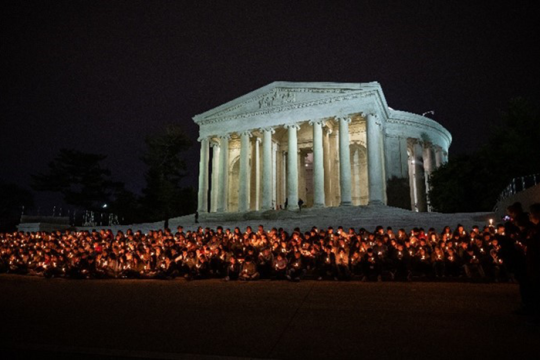
In the United States today, 2.3 million people are incarcerated and more than 20 times that number – 65 million Americans – have a criminal record. What opportunities are available for those who have paid their debt to society to re-enter their communities? What obstacles exist as they seek to take their lives in a different direction?
These questions are important for us to consider this April, which has been designated Second Chance Month by Prison Fellowship. Second Chance Month calls on us to confront the challenges returning citizens face as they strive to find jobs, housing and education and rebuild their lives after they leave jail or prison:
- Inadequate educational opportunities in prison: In the year after Congress banned Pell Grants for prisoners in 1994, higher education access for incarcerated people declined by 44 percent. This makes it much more difficult for those in prison to use their time to gain necessary skills for life outside of prison.
- Barriers to employment after prison: Despite the fact that most people who leave prison “want legal, stable employment upon release,” only 50 percent of returning citizens can find jobs within a year of leaving prison.
- Lack of access to housing: Broad leeway granted to public housing authorities allows them to deny subsidized housing to non-violent drug offenders, sometimes up to 10 years after the crime was committed. This often pushes formerly incarcerated people who cannot afford housing on the private market into unstable living situations.
- Over 48,000 other legal restrictions produce collateral consequences for those with a criminal record, compounding the debt they have already paid to society for their wrongdoings. In some cases, these barriers exist to serve a public safety necessity. Often, however, their impact is more punitive than restorative and can contribute to the high rates of recidivism in our country.
The prophet Ezekiel states: “I have no pleasure in the death of the wicked, but that the wicked turn away from his life and live” (33:11). We must provide better opportunities for the hundreds of thousands of Americans who leave prison each year to live new lives and productively re-enter society. You can learn more about how to observe Second Chance Month in your community from Prison Fellowship and take action to reform our criminal justice system to encourage successful reentry.
Related Posts

Teens from North Carolina Speak About Environmental Justice

Why is this Right Different?: City of Grants Pass, Oregon v. Johnson and the Passover Call to Action


